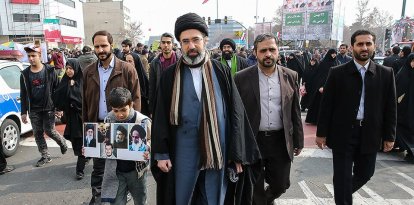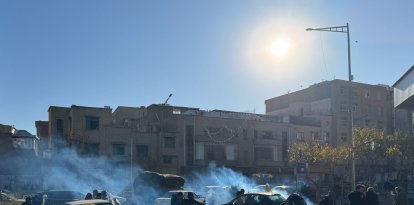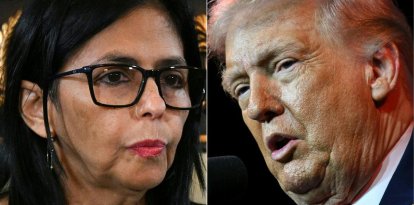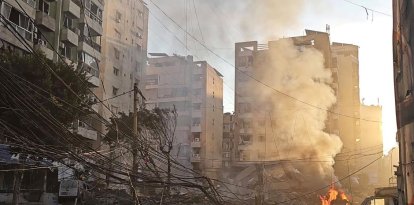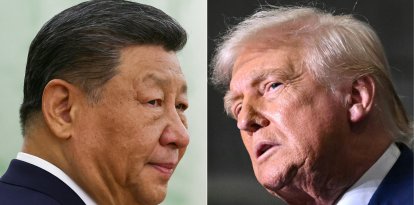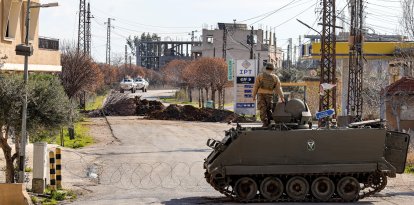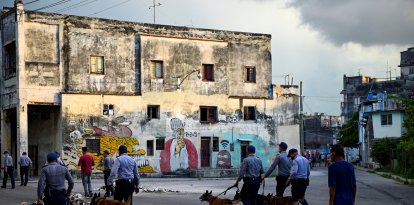The president of Iran Ebrahim Raisi dies: all the international reactions
Vice President Mohammad Mokhber was appointed interim president. He will have to call for elections in a maximum of 50 days.

(Cordon Press)
Ayatollah Ali Khamenei, Iran's highest political-religious authority, announced that his country will observe five days of mourning following the death of President Ebrahim Raisi this Sunday.
The 63-year-old official was traveling by helicopter after traveling to the province of East Azerbaijan - where he inaugurated a dam with his Azerbaijani counterpart - when local media reported that a carrier in his delegation had made a forced landing.
At first, it was unknown if Raisi's own helicopter had been affected. After hours of searching in a mountainous and wooded area, also made difficult by intense fog, the death of the president was confirmed.
"With deep sorrow and regret, I have received the bitter news of the martyrdom of the people’s President, the competent, hard-working Haj Sayyid Ebrahim Raisi, and his esteemed entourage," Ayatollah Khomeini confirmed the news in words later broadcast on his social networks.

Images of the search for the helicopter carrying Iranian President Ebrahim Raisi.
Raisi had an extensive political career, where he stood out for his repression of dissent, for promoting the nuclear program and even for being a member of a 'Commission of Death,' responsible for thousands of murders.
Due to his extensive political career and personal relationship, he was seen as the natural successor to the supreme leader, Ali Khameini.
Others traveling with Raisi and also killed in the accident include, among others, the Iranian Foreign Minister, Hossein Amirabdollahian, and the governor of the province of East Azerbaijan, Malek Rahmati, according to official Iranian sources.
Successor
The Iranian cabinet ministers issued a statement, carried by the local press, offering their condolences and assuring that "with the help of Almighty God and the collaboration of the noble people," there would not be "the slightest interruption in the management of the country."
Shortly afterwards, announcing national mourning, Ayatollah Khamenei confirmed who would take the reins of the country after the president's death: "In accordance with article 131 of the Constitution, Mokhber is responsible for directing the executive branch."
Mohammad Mokhber, the until then vice president, has the mission of working with the Legislative and Judicial branches to call elections to name the next president. Khamenei explained that he must comply with that mandate "within a maximum period of 50 days."
Officials also reported that Iran's top nuclear negotiator, Ali Bagheri, will take over the foreign affairs portfolio following the death of Amir-Abdollahian in the same incident.
Reactions
Both allies and terrorist groups related to Iran issued statements lamenting Raisi's death.
Hamas was one of the Tehran-sponsored jihadist militias that paid tribute to the dead president, highlighting its work in "supporting the Palestinian resistance." Another of them, Hezbollah, which operates from Lebanon, described him as the "protector of the resistance movements."
From Yemen, the Houthis assured that his death will be felt throughout the Muslim world. Especially among the Palestinians. Houthi spokesman Mohammed Abdulsalam also said, according to AFP, that the Palestinian cause "urgently" needed another president like Raisi.
"Please accept my deepest condolences over the enormous tragedy that befell the Islamic Republic of Iran," said Russian President Vladimir Putin, according to the official Russian agency TASS.
"Raisi’s tragic death is a great loss to the Iranian people, and the Chinese people have lost a good friend," said Chinese Foreign Ministry spokesman Wang Wenbin in a press conference reported by South China Morning Post. According to him, President Xi Jinping called the event "tragic" and sent his "sincere condolences."
"From Bolivarian lands," Venezuelan president Nicolás Maduro, a close ally of Iran, published on networks that he was "dismayed" by the death. "Cilia (partner of the Venezuelan dictator), who is a friend of his wife, and I are filled with great pain for having to say goodbye to an exemplary person," he said before describing Iran as an "example of dignity, morality and endurance."
Another Latin American ally of Iran, Cuba also sent a message of support to Iran from the official account of its president, Miguel Díaz-Canel:
Closer to the facts, the president of the neighboring Republic of Azerbaijan, Ilham Aliyev, said he was "deeply shocked by the news of the tragic loss." Aliyev described Raisi as a "prominent stateman" who "served his country with dedication and loyalty" and said he would pray for the Iranian people.
The Prime Minister of the Islamic Republic of Pakistan, Shehbaz Sharif, also came to X and announced a day of mourning when national flags will be flown at half-mast:
Farah Dakhlallah, spokesperson for the North Atlantic Treaty Organization (NATO), also sent his condolences on behalf of the alliance. However, the message sparked controversy due to Iran's close relationship with Russia, which it supports with resources such as drones in the Ukraine war, as well as the human rights violations associated with Tehran's regime.
President of the European Council Charles Michel also posted on social media. He gave his "sincere condolences" on behalf of the European Union. This message was also controversial, similar to that of Dakhlallah.
















